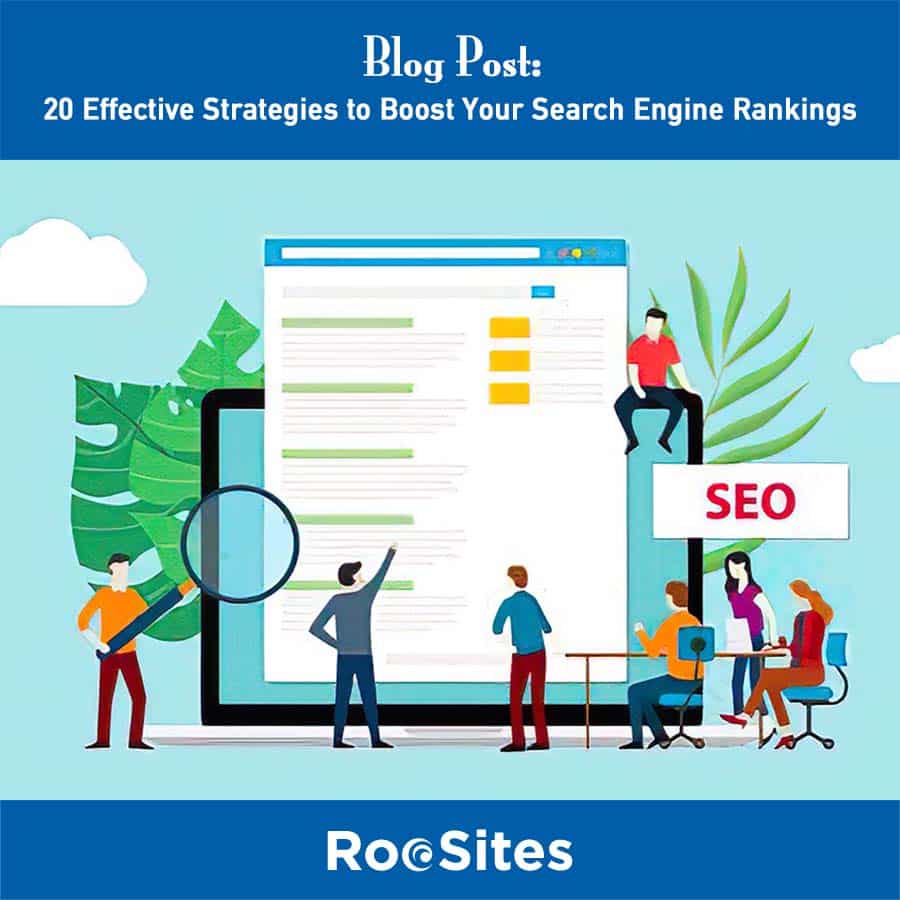 Search Engine Optimization (SEO) is a crucial aspect of digital marketing that can make or break a business’s online presence. However, despite its importance, SEO is often misunderstood, leading to misconceptions that can hinder a website’s performance. Here are the ten most misunderstood facets of SEO that every business owner should be aware of:
Search Engine Optimization (SEO) is a crucial aspect of digital marketing that can make or break a business’s online presence. However, despite its importance, SEO is often misunderstood, leading to misconceptions that can hinder a website’s performance. Here are the ten most misunderstood facets of SEO that every business owner should be aware of:
1. SEO is a One-Time Effort
One of the biggest misconceptions about SEO is that it’s a one-and-done task. In reality, SEO is an ongoing process that requires constant monitoring, tweaking, and updating. Search engines frequently change their algorithms, and what works today might not work tomorrow. Continuous effort is necessary to maintain and improve rankings.
2. Keyword Stuffing Still Works
In the early days of SEO, stuffing as many keywords as possible into your content was a popular tactic. However, search engines have become much more sophisticated. Today, keyword stuffing can hurt your rankings as search engines prioritize user experience and relevance over keyword density.
3. All Backlinks are Good Backlinks
While backlinks are crucial for SEO, not all backlinks are created equal. The quality of the backlinks matters more than the quantity. Links from reputable, high-authority sites are beneficial, whereas links from spammy or irrelevant sites can damage your SEO efforts.
4. SEO Guarantees Immediate Results
SEO is often seen as a quick fix for traffic and rankings, but in reality, it’s a long-term strategy. It can take several months to see significant results from your SEO efforts. Patience and persistence are key to a successful SEO campaign.
5. SEO is Only About Rankings
Many believe that Search Engine Optimization is solely about getting to the top of search engine results. While high rankings are important, the ultimate goal of SEO is to drive relevant traffic that converts into leads or sales. User experience, website speed, and mobile-friendliness are all critical aspects of a successful SEO strategy.
6. Paid Ads Improve Organic Rankings
Another common misconception is that investing in paid ads, such as Google Ads, will directly boost your organic rankings. Organic SEO and paid search are two separate entities. While both are essential for a well-rounded digital strategy, paying for ads won’t improve your organic rankings.
7. Meta Tags Aren’t Important Anymore
With the rise of advanced SEO techniques, some believe that meta tags are no longer important. While meta tags alone won’t guarantee top rankings, they still play a vital role in helping search engines understand your content and improving click-through rates.
8. Social Media Signals Directly Influence SEO
There’s a belief that social media activity directly impacts SEO rankings. While social media can drive traffic to your site and enhance brand visibility, there’s no direct correlation between social signals and search engine rankings. However, the indirect benefits of increased traffic and engagement should not be overlooked.
9. SEO is All About Content
Content is a significant part of SEO, but it’s not the only factor. Technical aspects like site architecture, page speed, mobile optimization, and security (HTTPS) are also crucial for effective SEO. A well-rounded approach that combines quality content with solid technical SEO is essential.
10. SEO is Easy and Can Be Done Without Expertise
Search Engine Optimization is often underestimated, with some believing it can be done quickly without much expertise. However, SEO is complex and ever-evolving, requiring a deep understanding of both technical and creative elements. Hiring an experienced SEO professional or agency can make a significant difference in achieving your goals.
Conclusion
Understanding the nuances of Search Engine Optimization (SEO) is vital for anyone looking to improve their website’s visibility and performance. Avoiding these common misconceptions can save you time, money, and frustration, and help you develop a more effective SEO strategy that drives real results. Remember, SEO is a marathon, not a sprint—commit to the long game, and your efforts will pay off.
Related Content: 20 Effective Strategies to Boost Your Search Engine Rankings
 In today’s digital age, having a strong online presence is essential for businesses and individuals alike. Search engines play a crucial role in driving traffic to websites, making it imperative to secure higher rankings in their search results. Fortunately, there are numerous tactics you can employ to improve your search engine rankings and gain a competitive edge. In this blog post, we’ll explore 20 effective strategies to help you achieve just that.
In today’s digital age, having a strong online presence is essential for businesses and individuals alike. Search engines play a crucial role in driving traffic to websites, making it imperative to secure higher rankings in their search results. Fortunately, there are numerous tactics you can employ to improve your search engine rankings and gain a competitive edge. In this blog post, we’ll explore 20 effective strategies to help you achieve just that.
- Quality Content is Key: Focus on creating high-quality, relevant, and engaging content. Valuable content attracts more visitors, encourages them to stay longer on your site, and signals search engines that your website offers authoritative information.
- Keyword Research: Conduct thorough keyword research to identify the phrases and terms your target audience is using to find content related to your niche. Use these keywords strategically in your content, titles, meta descriptions, and headings.
A good resource is: ahrefs free Free Keyword Generator.
- Optimize On-Page Elements: Ensure that your meta titles, meta descriptions, and URLs are optimized for each page. Use concise and relevant descriptions that accurately reflect the content.
- Mobile Responsiveness: With an increasing number of users accessing the internet through mobile devices, it’s crucial to have a mobile-friendly website. Search engines prioritize mobile-responsive sites in their rankings.
- Page Load Speed: Optimize your website’s loading speed to enhance user experience. Faster-loading pages tend to rank higher in search results.
A good tool for this is GTMetrix
- Link Building: Build a diverse and high-quality backlink profile. Acquire backlinks from authoritative websites within your industry to boost your website’s credibility.
- Internal Linking: Utilize internal links to help search engines understand the hierarchy and relevance of your content. This can also encourage visitors to explore more pages on your website.
A good explanation of what Internal linking is and best practices from MOZ.com
- Image Optimization: Optimize your images by adding descriptive alt tags and reducing file sizes to improve page load speed.
- Utilize Heading Tags: Organize your content with appropriate heading tags (H1, H2, H3, etc.). This makes your content easier to read and improves its structure for search engines.
- User Experience (UX) Enhancement: Ensure that your website offers an intuitive and user-friendly experience. A well-organized site with easy navigation encourages users to stay longer, reducing bounce rates.
- Social Media Engagement: Leverage social media platforms to promote your content and engage with your audience. Increased social signals can positively impact search engine rankings.
- Video Content: Diversify your content with videos. Video content is increasingly popular and can enhance user engagement on your site.
- Voice Search Optimization: With the rise of voice search, optimize your content for voice queries by focusing on natural language and long-tail keywords.
- Secure Website: Implement SSL certificates and switch to HTTPS to create a secure browsing experience for users, as search engines prefer secure websites.
- Regularly Update Content: Keep your content fresh and relevant by updating it regularly. This shows search engines that your website is up-to-date and offers valuable information.
- Blogging and Guest Posting: Maintain an active blog and consider guest posting on other reputable websites in your niche. This helps establish your authority and builds backlinks to your site.
- Local SEO: If you have a physical presence, optimize your website for local searches by creating a Google My Business listing and obtaining positive local reviews.
Check out our post on the 5 Ways To Improve Local Search Rankings.
- Monitor Analytics: Keep a close eye on website analytics to understand user behavior and identify areas for improvement.
- Long-Form Content: Create comprehensive and in-depth content that thoroughly covers topics. Long-form content tends to perform better in search engine rankings.
- Social Proof and Reviews: Encourage user reviews and testimonials, as positive social proof can enhance your website’s credibility.
In conclusion, improving your search engine rankings requires a multi-faceted approach that involves creating quality content, optimizing on-page elements, building strong backlinks, and providing an excellent user experience. By implementing these 20 strategies, you can increase your website’s visibility and organic traffic, paving the way for online success. Stay persistent, adapt to changing trends, and watch your search. If you have any questions about Search Engine Optimization, or anything else, please contact us today.
 Search Engine Optimization (SEO) is a crucial aspect of digital marketing that can make or break a business’s online presence. However, despite its importance, SEO is often misunderstood, leading to misconceptions that can hinder a website’s performance. Here are the ten most misunderstood facets of SEO that every business owner should be aware of:
Search Engine Optimization (SEO) is a crucial aspect of digital marketing that can make or break a business’s online presence. However, despite its importance, SEO is often misunderstood, leading to misconceptions that can hinder a website’s performance. Here are the ten most misunderstood facets of SEO that every business owner should be aware of: In today’s digital age, having a strong online presence is essential for businesses and individuals alike. Search engines play a crucial role in driving traffic to websites, making it imperative to secure higher rankings in their search results. Fortunately, there are numerous tactics you can employ to improve your search engine rankings and gain a competitive edge. In this blog post, we’ll explore 20 effective strategies to help you achieve just that.
In today’s digital age, having a strong online presence is essential for businesses and individuals alike. Search engines play a crucial role in driving traffic to websites, making it imperative to secure higher rankings in their search results. Fortunately, there are numerous tactics you can employ to improve your search engine rankings and gain a competitive edge. In this blog post, we’ll explore 20 effective strategies to help you achieve just that.